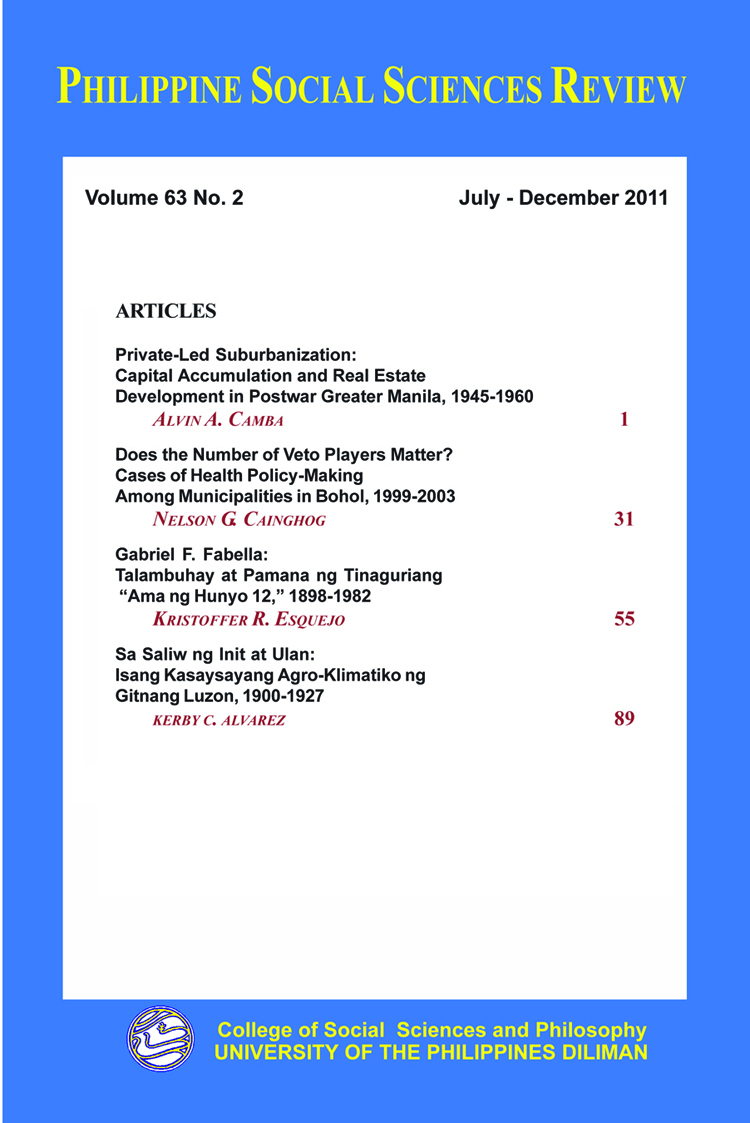Gabriel F. Fabella: Talambuhay at Pamana ng Tinaguriang “Ama ng Hunyo 12,” 1898-19821
Abstract
In 1962, President Diosdado Macapagal signed Proclamation No. 28 which enacted the changing of Philippine Independence Day from July 4 to June 12. This nationalist gesture of the said former president was interpreted by many as an assertion of Philippine sovereignty by going back to the original date of independence declared by General Emilio Aguinaldo, president of the oldest Asian republic, who was still alive at that time. In a broader scope, this was seen as a radical attempt of our nation to break free from being a neo-colony of the United States, our former colonial master. However, it is a saddening fact that the real person who had the original idea behind this legislation seemed not given sufficient credit and almost forgotten – Prof. Gabriel F. Fabella, dubbed as “Father of June 12.” Who is Fabella? More than a historian and an academician at the University of the Philippines, he was also a playwright, journalist, lawyer, politician, founder of several organizations and schools, writer and Rizalist. Though a product of American colonial education, he is an example of an ideal individual who succeeded in rising from poverty and gave immense contributions and honor to his Filipino countrymen, especially to the people of Romblon. This paper seeks to highlight the life and legacies of Fabella to the country. In commemorating the 50th anniversary of the said event, this papel will try to prove that a historian does not only study, teach and write history. He or she also possesses the power to make or produce history of national significance.
Published
2012-10-11
How to Cite
ESQUEJO, Kristoffer R..
Gabriel F. Fabella: Talambuhay at Pamana ng Tinaguriang “Ama ng Hunyo 12,” 1898-19821.
Philippine Social Sciences Review, [S.l.], oct. 2012.
ISSN 2672-3158.
Available at: <https://journals.upd.edu.ph/index.php/pssr/article/view/3327>. Date accessed: 02 oct. 2025.
Section
Articles
Keywords
Gabriel F. Fabella


